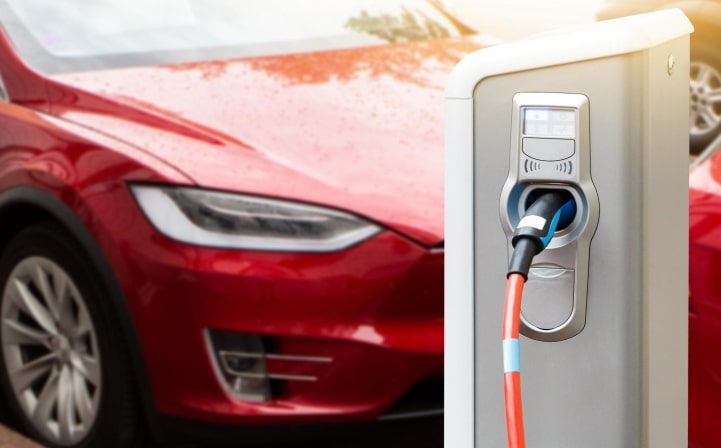So, you’ve joined the population of environmentally conscious Australians and bought an Electrical Vehicle! Congratulations, you’re one step closer to ensuring the survival of our planet. Surely, you’ve realized by now that EVs are quite different from cars that run on petrol? The engines are nearly silent, they need to be plugged in, and they feel oddly like you’re in a futuristic science fiction film, right?
One of the great things about Electrical vehicles is the lack of need for petrol — but they have to get their power from somewhere! That’s where EV Charging Stations come in: the power source of your car that helps get you where you need to go. But how do these things work, and which type of EV charger is right for you? This post has you covered, so read on:
What are EV Chargers?
So, what exactly are EV charging stations? Basically, EV chargers are electrical devices that are installed at your home or workplace, that plug into the local grid near your home or office via a dedicated circuit. They provide an electrical charge to your EV’s battery, so that you can drive wherever you need to without interruption. They’re designed to only emit electricity when plugged into your vehicle’s charging port, as a way of preventing wasted energy as well as a smart safety feature. They come in 3 types, including:
Level 1: Portable EVSE
Portable EVSEs are usually used for home charging stations since they don’t require professional installation. They use a 120-volt AC plug, which is easily plugged into most household outlets. They typically provide about 2-5 miles of driving per hour charged, which is why they’re good options for overnight charging at home.
Level 2: Wall Chargers
Wall chargers do require professional installation and can be used for either home or commercial charging. They use a 240-volt plug for residential units, and a 208-volt plug for commercial units. They deliver a faster charge than the Level 1 charging units and provide about 10-60 miles of drive time per hour charged.
Level 3: DC Fast Chargers
DC fast chargers are lightning fast and can deliver up to 100 miles of driving time from a quick 20-minute charge. They’re not compatible with all EVs, though, and require high-powered, specialized equipment to install. They’re used more for industrial and commercial charging purposes.
What Type of EV Charger is Right for You?
Your preferred EV Charging Station will depend on several factors, including:
- Whether you can charge your vehicle overnight
- What type of EV you drive — all charging stations are not universally compatible
- Whether you plan to upgrade your vehicle as EV technology advances
- Your home’s power capabilities — not all homes are equipped to handle the specificities of EV charging
Conclusion
Though driving an EV is different from a traditional vehicle, it’s a great option for transportation that contributes to the environment. Now that you know more about what types of EV chargers are available, you can be more confident in your search for the perfect EV charging station.
When it concerns electricity, safety is key. To ensure the safety and effectiveness of your EV charger installation, always call an electrician to install your EV chargers.

